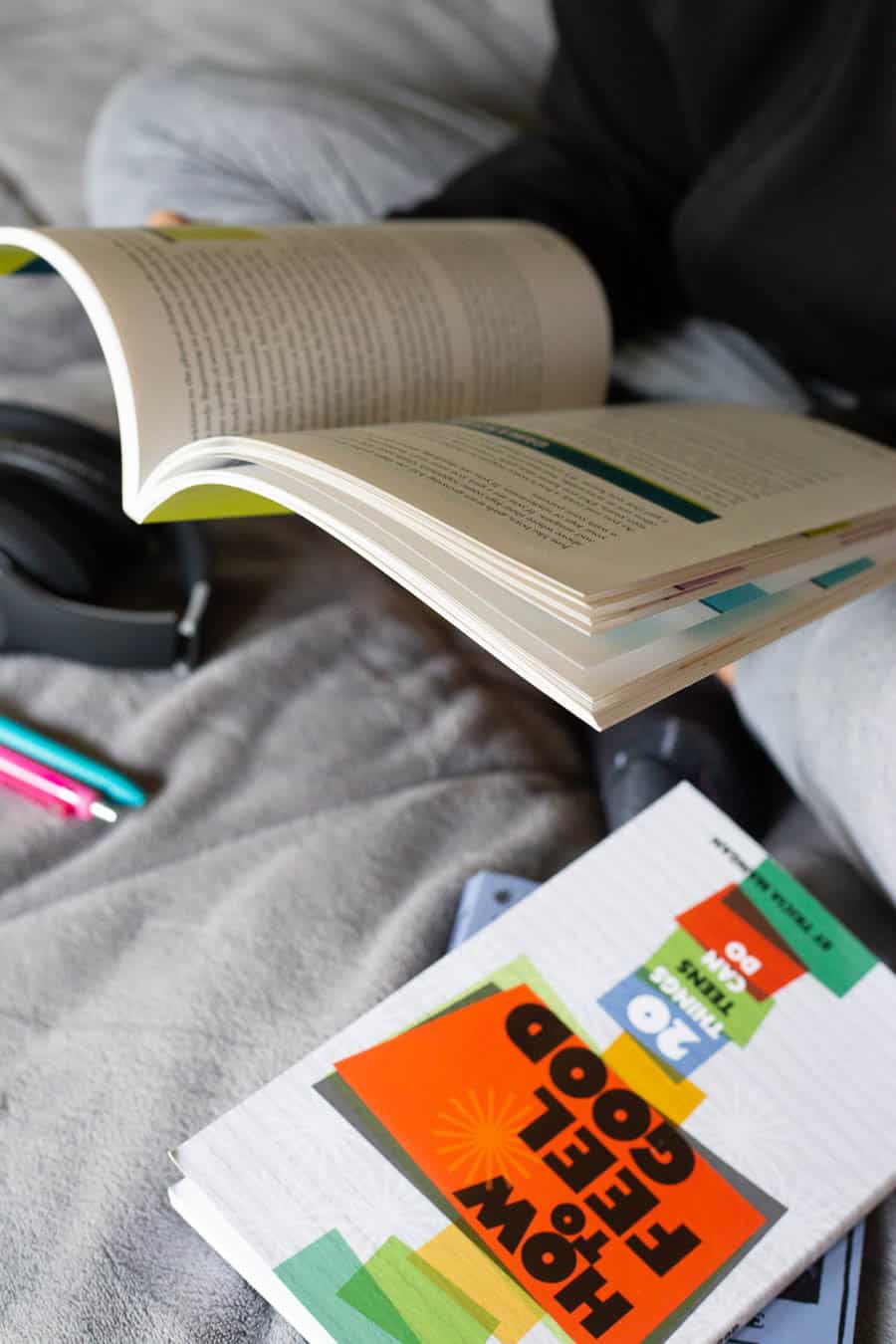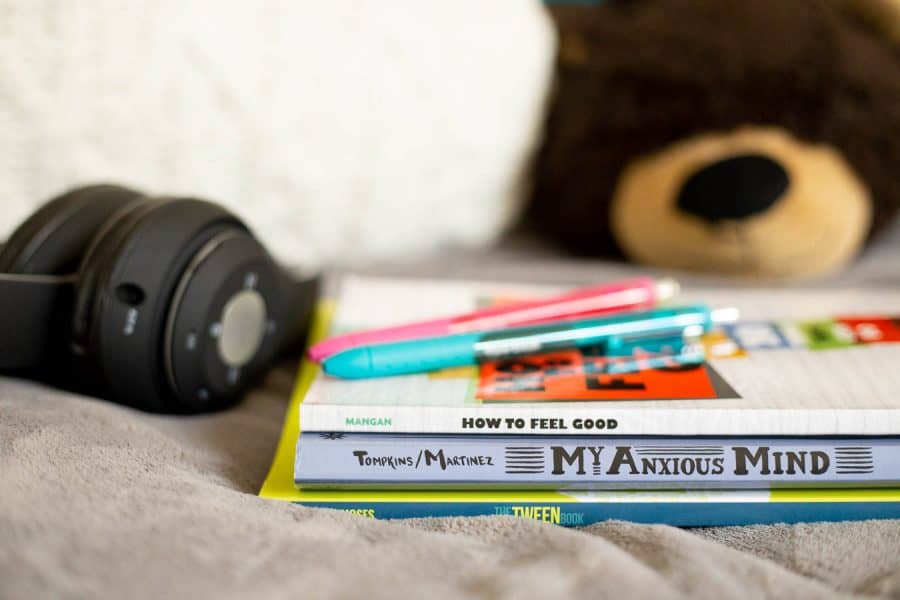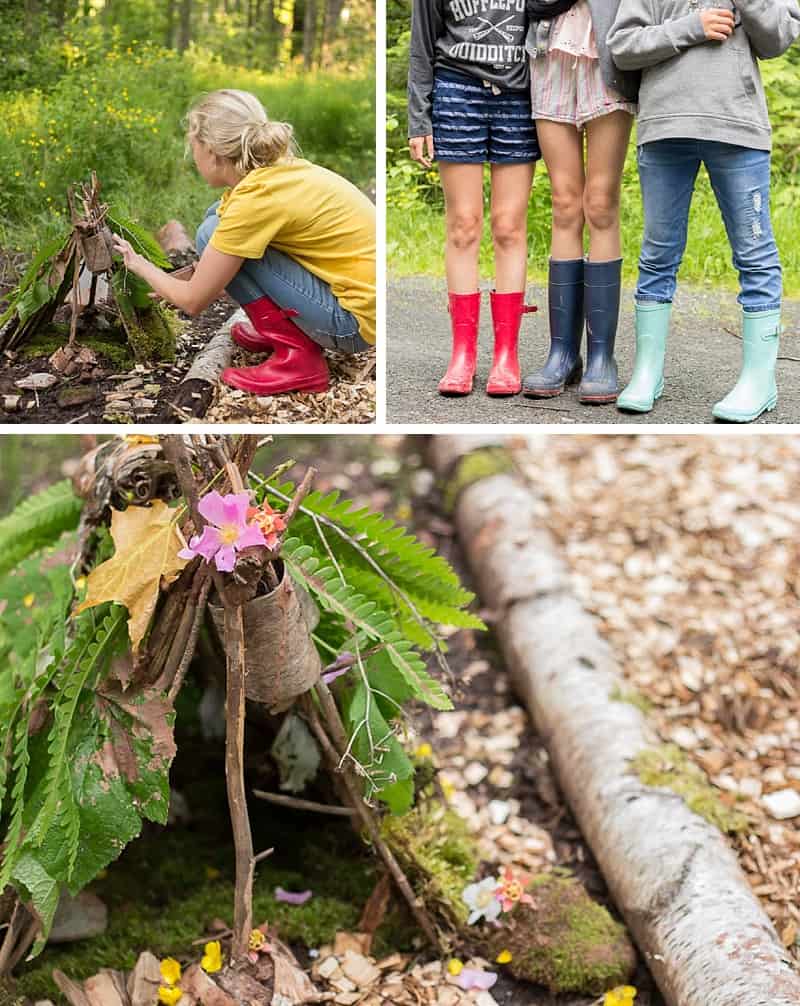The tween and teen years can be heartbreaking . . . Here are five tips to help your teen find balance, reduce stress, and manage the pressure of adolescence. A big thank you to Magination Press Family for sponsoring today's post.
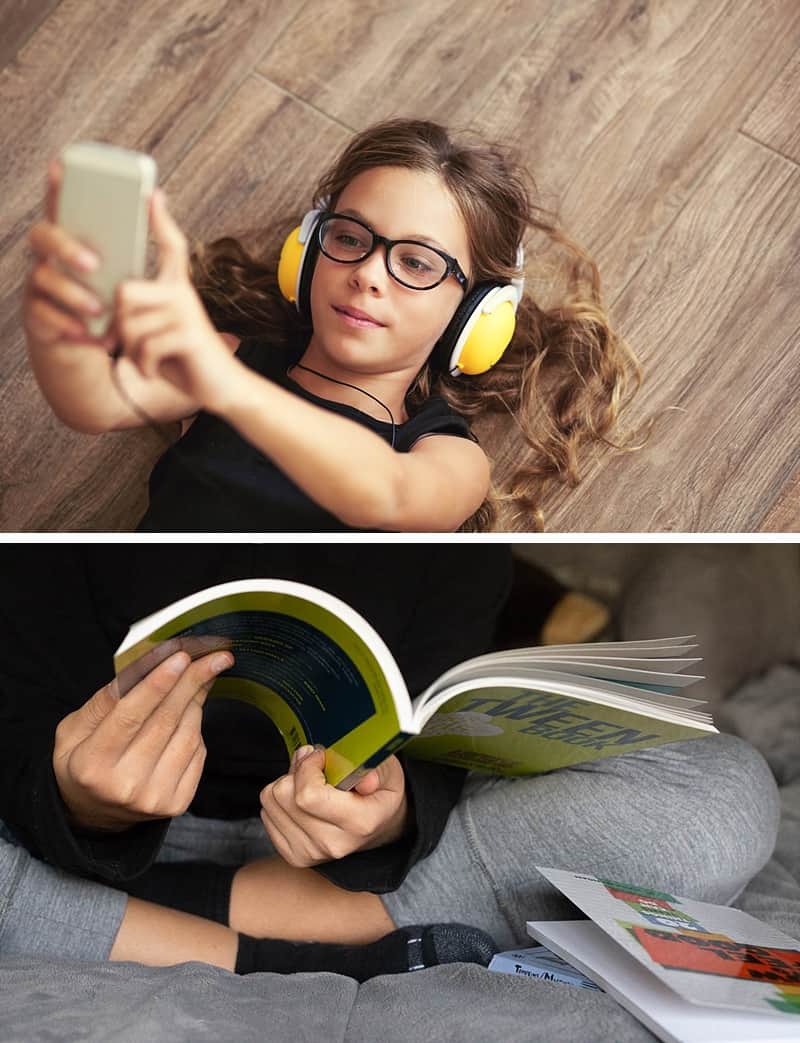
The tween and teen years are a time of rapid change, growth, and challenges. That means kids this age are at a high risk for developing anxiety. This is especially true in today's world, when children are constantly bombarded with screens and technology. The pressure of being "on" and available all the time can feel overwhelming.
During these adolescent years, anxious feelings can become difficult to manage for tweens and teens (and sometimes parents, too!). As a mom of both a tween and a teen, I'm excited to share with you a wonderful resource I recently stumbled upon called Magination Press Family.
When I first visited their website, I got lost in all the articles, resources, and (my favorite part) the bookstore. I ended up ordering three books specifically for tweens and teens. I admit, I had about 10 titles in my cart to start, but I whittled my final list down to 3. (I've been trying to work on my book-hoarding skills. I'm the mom you see walking out of the library with a stack of books two feet tall. Is this you, too?)
I noticed that the professional advice in the three books I ordered seemed to share several common ideas to help young people learn how to calm and comfort themselves. I've gathered a few of my favorite ideas below, along with an actionable tip for each.
5 Important Things Every Tween or Teen Needs to Know
The tween and teen years can be heartbreakingly challenging. Here are 5 things every tween or teen needs to know to help make it through this transitional period a little easier.
1. Live in the present.
Kids can be susceptible to additional stressors as they head into the teen years, often spending time dwelling on past mistakes (like a mishap with a friend over lunch) or focusing too much on future worries (like a test later in the week). Thinking anxiously about that test won't help your teen get a better grade, but studying today will.
When we help our tween learn how to practice living in the present, we help our child focus on the power of TODAY.
ACTIONABLE TWEEN & TEEN TIP
To keep your mind from wandering back into the past or worrying about the future, find something to remind you to be present. For example, wear a special watch or bracelet or place a keychain on your school backpack. Every time you see the watch, bracelet, or key chain, stop what you're doing and take a quick second to notice what's going on around you right now, using your five senses to help you re-focus yourself into the present moment. (Idea Source: How to Feel Good: 20 Things Teens Can Do)
2. Shine a spotlight on good things.
As our kids head into the teen years, their lives become more complex. Some days, good things happen (like they rocked a test). Other days, some not-so-good things could be going on (like they unexpectedly got in trouble with a teacher).
Tricia Mangan, who has a background in cognitive-behavioral and positive psychology principles, explains to kids in her guide for teens that:
When one or two things go wrong, it can seem like the light has gone out on all good things. That can make you feel dark and gloomy. Everything in your whole life seems bad. But it's not that the good things aren't there. It's just that you've stopped paying attention to them." (Source: How to Feel Good: 20 Things Teens Can Do, p. 15)
ACTIONABLE TWEEN & TEEN TIP
To help keep your mind focused on the good things, start a daily Gratitude Journal. It can be as easy as writing a bulleted list of things you're grateful for each day in a notebook. There's no right or wrong way to do it. (Using colored pens or markers might make it feel less like homework and more like a fun, creative activity.)
You can choose to keep your journal private, or talk to your parents about making it a family activity. For example, during dinner, have each family member share three everyday things for which he or she is grateful. Seeing how much you (and your family) have to be happy about every day can help fuel an "attitude of gratitude" and re-frame your thinking when one negative thing may be dragging your spirits down.
3. Let go of "should" and "must."
If your tween is a perfectionist like mine is, you know that words like should and must (as well as their cousins: have to, need to, and ought to) put a lot of pressure on teens and unnecessarily increase their anxiety. Help your teen change his or her self-talk patterns.
ACTIONABLE TWEEN & TEEN TIP
"If shoulds and musts are playing in your collection, change them into something that seems more doable and reasonable such as, 'I would like to . . . ,' 'It would be nice if . . . ,' and 'I will do my best to . . . ' These new tracks turn the heat down a notch or two. Try shooting for excellence, not perfection." (Source: My Anxious Mind: A Teen's Guide to Managing Anxiety and Panic, p. 56)
4. "Press pause" and take a deep breath when you need to.
Our kids live in a fast-paced world. Many teens feel as though they always have to be busy — constantly moving, doing, accelerating. When pressure, expectations, and stress make your son or daughter’s world start spinning a little too fast, pausing to be mindful is one powerful way to guide your child back toward inner calm, peace, and stillness.
ACTIONABLE TWEEN & TEEN TIP
Find tools to begin practicing mindfulness. You might think that breathing and relaxation tools are only for grownups who do yoga or meditation, but with a little practice, you might find them helpful for you, too! To get started, search the web for apps, videos, or sites that offer guided breathing sessions or progressive body relaxation scans. Find a time during your day when things are less hectic — like right before or right after school — and practice slowing down and calming your mind. Not only will practicing mindfulness help calm anxieties, but it also helps you practice being able to focus.
Michael Tompkins, PhD, explains:
Have you ever watched LeBron James at the free throw line? He takes one, two, perhaps even three slow deep breaths that calm his body and mind as he bounces the ball several times. In a similar way, Yo-Yo Ma, the classical cellist, might squeeze his fist or shrug his shoulder to release tension before beginning to play. These actions may seem small and insignificant, but consider this: deep breathing and muscle relaxation enables them to produce some amazing results." (Source: My Anxious Mind: A Teen's Guide to Managing Anxiety and Panic, p. 35)
5. Know that your parents will always be there for you (even when you're a full-fledged adult).
The tween and teen years are a dance between childhood and independence. It can be challenging and confusing for kids and parents alike. Keep the lines of communication open. Teens should be reminded that love is not something they have to give up with their growing independence. Make sure your tween knows you'll always be there to love and support him or her — not only through the teen years, but throughout life.
ACTIONABLE TWEEN & TEEN TIP
Every once in a while, it might be helpful to talk with your parents about a time when you feel they don't let you be independent, when you feel that they ask you to be too independent, and when you feel comfortable with how things are going. Then you can hear why they made the choice they did, and you and your parents can understand each other better." (Source: The Tween Book: A Growing-Up Guide for the Changing You, p. 39)
ONE LAST THING . . . Don't let go of your youth.
Many tweens and teens secretly wonder if they have to say goodbye to everything that made them who they were as a little kid. Remind your tween that:
The people who see magic in the world are the ones looking for it.
Wendy Moss, PhD, explains:
It's not just tweens who hold onto their favorite toys and activities from childhood. Lots of adults do 'kid things,' too! Do you know why young adult (YA) books like the Harry Potter series or the Divergent series are so popular? Because grown-ups read them, too!
According to a new study, a whopping 55% of people buying YA books are older than 18 years old. While you might thinks these grown-ups are just buying books for kids, think again. When asked, 78% of those adults said they are reading the books themselves." (Source: The Tween Book: A Growing-Up Guide for the Changing You, p. 10.)
Tweens might be fearful of acting like a little kid, but remind them it's okay (even healthy) to hold onto the wonderful activities and traditions they loved when they were young. Better yet, SHOW them it's OK by engaging in one of their favorite childhood activities together.
ACTIONABLE TWEEN & TEEN TIP
Find a Young Adult book that you and one of your parents can read together. If there's a film adaptation, make plans to celebrate finishing the book with a movie night. Or, if you loved building fairy houses as a kid, talk to a parent about heading to a local engineering event or architecture tour. Or, if you loved playing Hide-and-Seek as a kid, ask about planning a Laser Tag afternoon together with them. Don't let go of the activities you loved most as a kid!
. . .
I hope learning these 5 things — and trying the 5 actionable tips — will help your teen find balance, reduce stress, manage pressure, and stay connected with you.
In an ever-changing, fast-paced world, I'm sure glad to have a trusted resource like Magination Press Family (with the backing of the APA!) to help me guide my tween and teen girls to better self-care at an early age.
Let's all take a centering breath together right now to set an example for our children of the power of mindfulness in our busy, everyday lives. Ready?

P.S. Let me know if you love this new parent resource as much as we do!
YOU MIGHT ALSO LIKE
- 3 Ways Mindfulness for Teens / Tweens Is Pivotal
- Just Between Us Journal: How to Get Your Tween To Talk With You More
- What To Do When You Live With Messy People
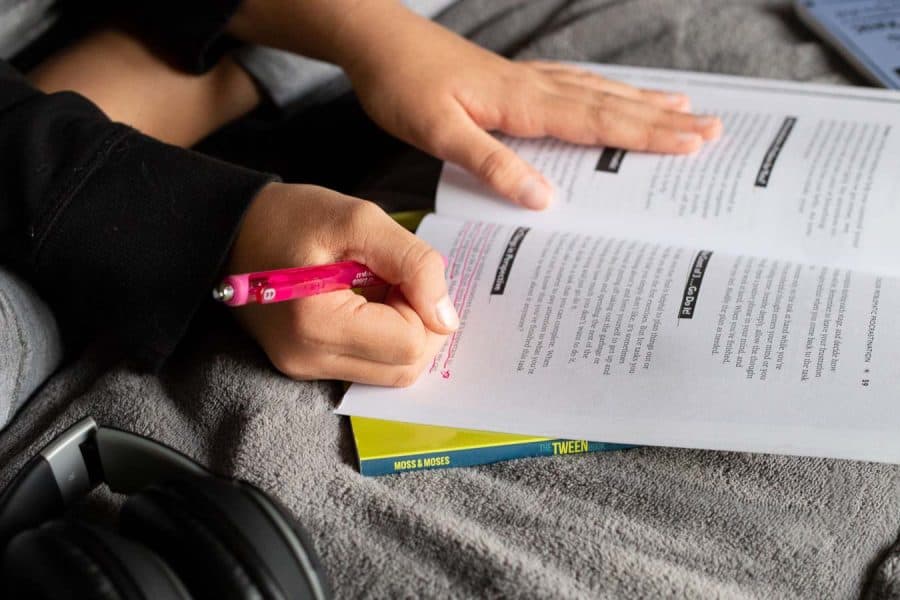
 |
 |
 |
 |
 |
|
 |
|||||
Disclosure of Material Connection: This is a “sponsored post.” The company who sponsored it compensated me via a cash payment, gift, or something else of value to write it. Regardless, I only recommend products or services I use personally and believe will be good for my readers. I am disclosing this in accordance with the Federal Trade Commission’s 16 CFR, Part 255: “Guides Concerning the Use of Endorsements and Testimonials in Advertising.”
Sourced with permission:
- Wendy L. Moss and Donald A. Moses, The Tween Book: A Growing-Up Guide for the Changing You (Washington, DC: Magination Press, 2016), 39.
- Tricia Mangan, How to Feel Good: 20 Things Teens Can Do (Washington, DC: Magination Press, 2012), 15, 43.
- Michael A. Tompkins and Katherine Martinez, My Anxious Mind: A Teen's Guide to Managing Anxiety and Panic, (Washington, DC: Magination Press, 2010), 35, 56.
PLEASE NOTE: American Psychological Association is not responsible for the accuracy of this translation of materials.
![]()
Pin this book list for later:
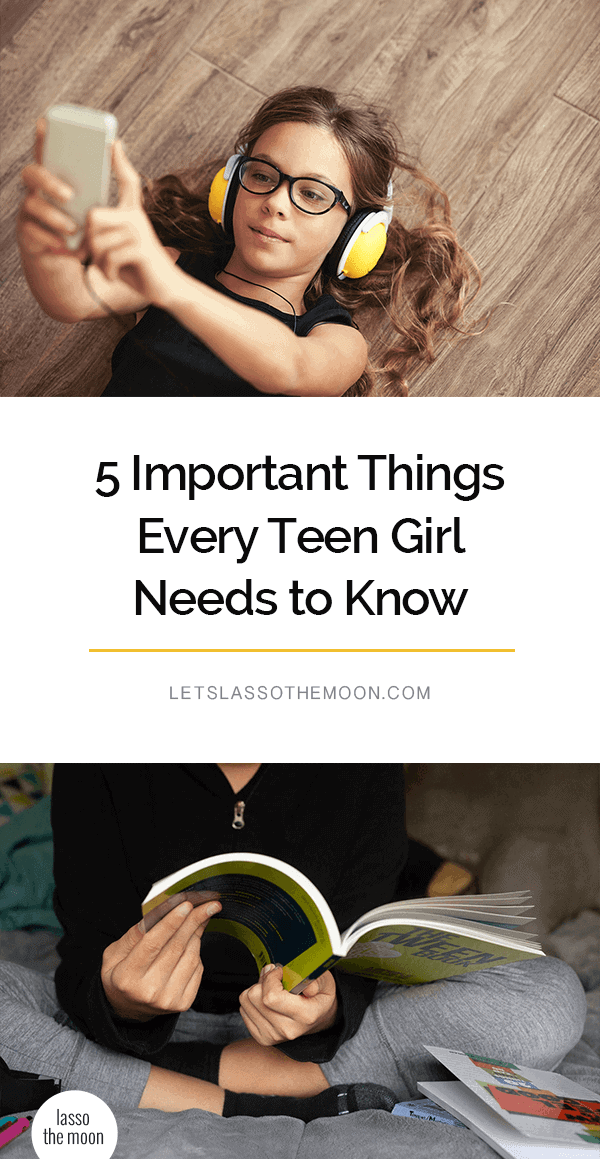
Image Credit: Top photo by Alena Ozerova

